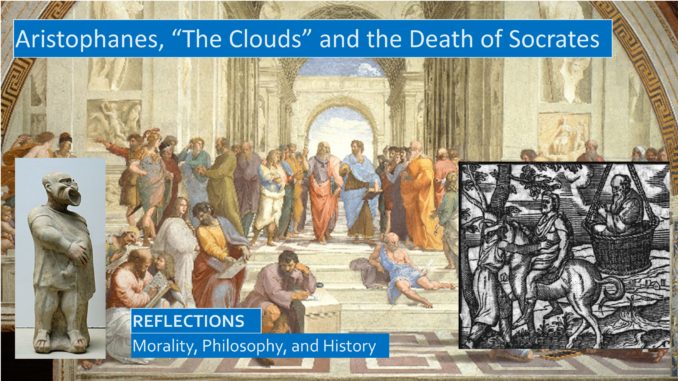
Death threats were made against election officials in Georgia and the other swing states in the weeks after the election when Donald Trump and many Republicans spread and often repeated the big lie that the election was stolen from Trump.
Over a month before far-right insurrectionists stormed the Capitol, beating and killing many policemen, seeking to murder Mike Pence and congressmen, a chilling warning was voiced on the steps of Georgia’s capital by Gabriel Sterling, the manager of the state’s voting systems:
“Stop inspiring people to commit potential acts of violence. Someone’s going to get hurt, someone’s going to get shot, someone’s going to get killed.” “It has all gone too far. It has to stop.”[1]
If you have forgotten the memorable “IT HAS TO STOP” press conference, here it is: https://www.youtube.com/watch?v=jLi-Yo6IucQ
Please view our YouTube video, which has some differences: https://youtu.be/Pn7wYntimjo
Many millennia ago there was another injustice when a five-hundred person jury convicted Socrates to death, and in his trial Socrates felt compelled to protest to the jurors that he was not the same Socrates as the miscreant Socrates lampooned by the Athenian comedian Aristophanes in his play “The Clouds.” An overly simplistic remembering of the play led many jurors to wrongly remember that the Socrates floating in the clouds in the play of Aristophanes was guilty of corrupting the youth and was denying the divinity of Zeus and the gods, which were the same charges brought against Socrates in the trial, and for which he was condemned to death by drinking hemlock.
The play was initially performed over twenty years prior to the trial, so we can presume that Aristophanes’ “The Clouds” was the rare Greek play that was performed multiple times. What else could explain that it was so well remembered that Socrates felt that he had to defend himself against it?
The analogy is only partial, Aristophanes in his play did not come out directly and say Socrates should suffer the ultimate fate for his indiscretions, and a careful reading of his play reveals the subtlety of his argument. But a simplistic understanding of the play could lead the ordinary citizen to believe that Socrates was deserving of death, since the constant farts and other bathroom humor in the play distracts from its more subtle interpretations.
But Aristophanes does have the leader of the chorus in the play say this:
“But if a mortal dares to insult the goddesses of the Clouds, let him think of the ills we shall pour upon him. For him neither wine nor any harvest at all! Our terrible slings will mow down his young olive plants and his vines. If he is making bricks, it will rain, and our round hailstones will break the tiles of his roof. If he himself marries or any of his relations or friends, we shall cause rain to fall the whole night long. Verily, he would prefer to live in Egypt than to have given this iniquitous verdict.” Several other passages warn against offending the gods lest dire consequences result.
“The Clouds” ends with violence, the angry protagonists burn down the school of Socrates. One shouts out to Socrates and his students:
“Ah! you insulted the gods! You studied the face of the moon! Chase them, strike and beat them down! Forward! they have richly deserved their fate-above all, by reason of their blasphemies.” Some versions end the play with a warning from the god Hermes that mortals should not insult the gods.
At a minimum, the play “The Clouds” is a reminder that there is always a spiritual risk to comedy, that there is always a spiritual risk to making fun of your neighbor, even when there is no evil intent, because comedy and jest can transition into slander and ill-will, with unfortunate consequences, even when no harm is intended.
OUTLINE OF THE CLOUDS
The play opens with Strepsiades, an old farmer whose son, Phidippides, has been ruining him financially with his expensive hobby of horse racing. The father has heard that there is this Sophist named Socrates who can teach his son the skill of rhetoric, of fancy talking, so he can talk himself out of having to pay his substantial debts. He has no luck in talking his son into attending the school of Socrates, so Strepsiades decides to join his school instead to learn the art of fancy talking.
Was Aristophanes gas-lighting the audience? One common theme of many of Plato’s Socratic dialogues was that Socrates was NOT a Sophist. The Sophists charged the aristocrats who enrolled their sons in their classes a tidy sum for teaching their sons the art of rhetoric. Political and often business success in both ancient Greece and Rome depended on rhetoric, the ability to eloquently advance and defend your positions both in the political assemblies and to the large public juries in the ancient world. Many of the Sophists concentrated on teaching only the manipulative techniques of public speaking with little emphasis on moral principles, just like debating clubs today debate positions selected at random by the participants.
In contrast, Socrates did not charge for his classes, and teaching moral principles was central to his teaching. The Socrates of Xenophon sounds like a stoic philosopher interested only in moral teachings, while the Socrates of Plato strived to teach his students the moral judgements that a good citizen needed to participate in a democracy. The Platonic Socrates also explored moral topics such as, “What is Love?” in many of his dialogues.
At one point Aristophanes had the LEADER OF THE CHORUS sing of the prospective student of Socrates:
“Oh, mortal, you who desire to instruct yourself in our great wisdom, the Athenians, the Greeks will envy you your good fortune. Only you must have the memory and ardor for study, you must know how to stand the tests, hold your own, go forward without feeling fatigue, caring but little for food, abstaining from wine, gymnastic exercises and other similar follies, in fact, you must believe as every man of intellect should, that the greatest of all blessings is to live and think more clearly than the vulgar herd, to shine in the contests of words.”
This positive description of the Sophists confirms the suspicions of many scholars that the condemnation of the Sophists in the Platonic dialogues may be overdrawn.
Aristophanes was gas-lighting his audience in the opening scene when Strepsiades asked to join his school to learn how to fancy talk his way out of his legitimate debts, Socrates would have never admitted a student who confessed that he wanted for Socrates to teach him how to commit fraud by avoiding his debts.
When Strepsiades first joined the school of Socrates, one of his fellow students told some funny anecdotes of how far a flea could jump, then revealed how Socrates determined whether a gnat buzzed through its proboscis or through his anus, and our gentle reader can easily guess through which end the gnat sounds his buzzing trumpet.
Perhaps this was the inspiration for Dante’s description of the demons in eighth circle of hell in his “Inferno” who torment with grapple hooks the grafters condemned to swim in a sea of sticky pitch, these demons who also used their ass as a trumpet.
Socrates is ridiculed in his first entrance in the play where, suspended in a basket, he is gazing up through the clouds.
STREPSIADES: First, what are you doing up there? Tell me, I beseech you.
SOCRATES POMPOUSLY: I am traversing the air and contemplating the sun.
STREPSIADES: Thus it’s not on the solid ground, but from the height of this basket, that you slight the gods, if indeed….
SOCRATES: I have to suspend my brain and mingle the subtle essence of my mind with this air, which is of the like nature, in order clearly to penetrate the things of heaven. I should have discovered nothing, had I remained on the ground to consider from below the things that are above; for the earth by its force attracts the sap of the mind to itself. It’s just the same with the watercress.
Aristophanes is playing to the prejudice of the Athenian audience that philosophers contemplate meaningless questions of the heavens that bear no practical relevance to daily life. The truth was that although Socrates was interested in physics and science early in his career, but the time of the play he was solely interested in moral philosophy. Many common Athenians were wary of science, they preferred supernatural explanations of the weather, that they were caused by the gods rather than by nature.
When Strepsiades asks, Who are the chorus of the Clouds? Aristophanes has Socrates answer: “They are the Clouds of heaven, great goddesses for the lazy; to them we owe all, thoughts, speeches, trickery, roguery, boasting, lies, sagacity.” Which perhaps is another “proof” that Socrates is nothing but an immoral Sophist.
Aristophanes has Socrates admitting that the gods have nothing to do with thunder and lightning, that they are caused by a vortex, which Strepsiades thinks is the name of a competing deity. The true attitudes of Socrates and most Greek philosophers concerning the gods are more subtle and complicated than Aristophanes depicts in his play. The Socrates of Xenophon mentions the myths of the gods directly, but even the Socrates of Plato does not actively seek to disparage belief in the ancient gods.
Strepsiades steers his conversation with Socrates into the only topic that interests him, how to defraud his creditors with fancy talking and casuistries. This Socrates of Aristophanes’ invention entertains this train of thought, until he throws Strepsiades out of frustration of his inability to teach him anything at all.
DIALOGUE BETWEEN JUST DISCOURSE AND UNJUST DISCOURSE
But Strepsiades has learned just enough of the fancy talking to talk his son Phidippides to at least consider attending the school of Socrates so he can talk the family creditors out of their debts. When Phidippides and Strepsiades return to the school there is a remarkable dialogue between JUST DISCOURSE and UNJUST DISCOURSE where, remarkably, UNJUST DISCOURSE wins the argument! These are the opening volleys:
JUST DISCOURSE: I am going to destroy you mercilessly.
UNJUST DISCOURSE: How pray? Let us see you do it.
JUST DISCOURSE: By saying what is true.
UNJUST DISCOURSE: I shall retort and shall very soon have the better of you. First, maintain that justice has no existence.
And they argue about justice, which is a topic of prime interest in the Platonic dialogues. In a nutshell, JUST DISCOURSE argues that right living upholds the traditions of society. Aristophanes has JUST DISCOURSE providing a key observation: that people often condone wickedness by gas-lighting, by calling that which is evil good, and by calling that which is good, evil.
JUST DISCOURSE tells Phidippides:
If you devote yourself to practicing my precepts, your chest will be stout, your color glowing, your shoulders broad, your tongue short, your hips muscular, but your tool small. But if you follow the fashions of the day, you will be pallid in hue, have narrow shoulders, a narrow chest, a long tongue, small hips and a big thing; you will know how to spin forth long-winded arguments on law. You will be persuaded also to regard as splendid everything that is shameful and as shameful everything that is honorable.
You would expect that UNJUST DISCOURCE would lose the argument, except that the dialogue in Aristophanes justifies adulterous behavior by saying that since Zeus does it, it must be okay:
UNJUST DISCOURSE
But you, young man, just consider a little what this temperance means and the delights of which it deprives you-young fellows, women, play, dainty dishes, wine, boisterous laughter. And what is life worth without these? Then, if you happen to commit one of these faults inherent in human weakness, some seduction or adultery, and you are caught in the act, you are lost, if you cannot speak. But follow my teaching and you will be able to satisfy your passions, to dance, to laugh, to blush at nothing. Suppose you are caught in the act of adultery. Then up and tell the husband you are not guilty, and recall to him the example of Zeus, who allowed himself to be conquered by love and by women. Being but a mortal, can you be stronger than a god?
In this manner, Aristophanes has UNJUST DISCOURSE lose the argument.
In this manner, unbelievers also argue against the truth of the Judeo-Christian tradition by pointing at seemingly harsh passages in the Old Testament, such as where Joshua massacres the citizens of unbelieving cities and the Psalms cries how the brains of the Babylonian babies should be dashed upon the rocks.
Greek moral philosophers taught that the myths should be read allegorically to derive their underlying moral lessons rather than literally as examples to blindly follow. Likewise, Christians teaches like St Augustine in his work, “On Christian Doctrine,” teaches that the lesson of all Holy Scriptures is that we should Love God and love our neighbor as ourselves, and that brutal passages that make sense in the ancient warrior societies of the Old Testament but that appear very unchristian to modern readers should likewise be read allegorically. Examples include the passages from Joshua that bids us to massacre our enemies and the Psalm that bashes the brains of Babylonian babies on the rocks. The rabbis and church fathers interpret these passages allegorically, what they tell us is we are battle the evil forces within our hearts. Biblical archeology supports this approach, whereas there is evidence of some events in the Book of Judges, there is no archeological evidence for the widespread destruction described in the Book of Joshua, so likely the many exaggerated stories in Joshua are likely embellished campfire stories commonly found in oral traditions.
The play closes with Phidippides, with his training as a Sophist progressing, abandoning horse racing, replacing this vice with the vice of constantly fighting and questioning his father, and being generally disrespectful. Then they both decide to burn down the school of Socrates.[2]
CONCLUSION
Our recent experience with the Capitol riots, where many policemen were either killed or seriously injured by the “patriotic” rioters, reminds us of the historical lesson us that indeed, WORDS DO MATTER, that when national leaders and spokesmen constantly condone violence against one’s political enemies, that violence and mayhem may indeed break out, and be difficult to control. Genies resist being stuffed back into their bottles.
These observations suggest that the gas-lighting criticisms of Socrates Aristophanes’ play, “The Clouds,” was definitely a contributing factor in the execution of Socrates following his trial in Athens.
These thoughts came to my mind when I was listening to a Teaching Company lecture by Professor Robert Bartlett on “The Clouds” by Aristophanes. This play was not among the primary reasons for his death. As we discussed in our blogs on the trial of Socrates, he had something of a death wish, and may have been condemned more for his hubris than for his guilt. Professor Bartlett speculates that Aristophanes was also warning Socrates about the recklessness of his rhetoric and his apparent arrogance.[3]
We are reminded by Plato and Xenophon in their accounts of the death of Socrates that the slanders in “The Clouds” are but one of many factors leading up to the execution of Socrates. These others factors include the ugly political fallout from the Athenians losing their empire when they lost the Peloponnesian War; Socrates’ low opinion of the demagogues of the Athenian democracy that lost the war; and most importantly, Socrates’ hubristic arrogance displayed in his defense speech and sentencing speech.
Please read our blogs on Plato’s dialogues on the trial and execution of Socrates:
http://www.seekingvirtueandwisdom.com/trial-of-socrates-in-apology-and-crito-blog-1/
http://www.seekingvirtueandwisdom.com/sentencing-and-execution-of-socrates-in-apology-and-crito-blog-2/
Please read our blog on Xenophon’s Stoic Socrates:
http://www.seekingvirtueandwisdom.com/the-stoic-socrates-of-xenophon/
And our blog on Plato’s dialogue on Euthyphro:
http://www.seekingvirtueandwisdom.com/plato-euthyphro-who-wont-listen/
[1] https://www.reuters.com/article/us-usa-election-georgia-raffensperger/truth-matters-says-georgia-official-resisting-trump-pressure-idUSKBN2980R5
[2] http://classics.mit.edu/Aristophanes/clouds.html
[3] Robert Bartlett, “Masters of Greek Thought: Plato, Socrates, and Aristotle (https://www.thegreatcoursesplus.com/masters-of-greek-thought-plato-socrates-and-aristotle: 2008), Lecture 3: Aristophanes’ Comic Critique of Socrates.


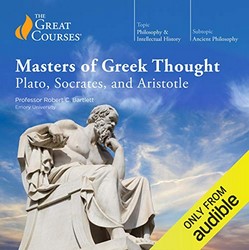
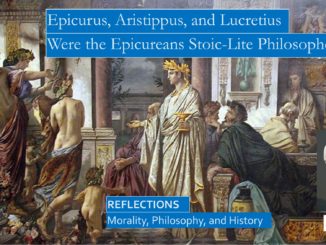
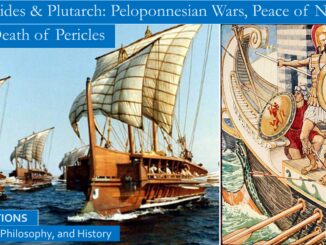
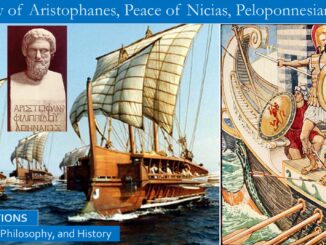
3 Trackbacks / Pingbacks